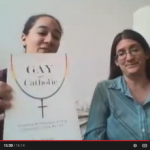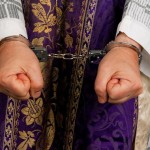This post is part of a series on the politics and philosophy that underlie the fight over gay marriage. You can see all the posts in this series at the gay marriage index.
As the fight over the proposed Cordoba House mosque near Ground Zero has heated up, conservative Christians across the county are using this story to gin up support to block construction of mosques across the nation, regardless of their proximity to NYC. Anti-mosque activists, struggling to explain why Islam alone should be excluded from the religious protections afforded by the First Amendment, have fixed on the idea that Islam represents a unique threat to democratic government. According to the article above:
Diana Serafin, a grandmother who lost her job in tech support this year, said she reached out to others she knew from attending Tea Party events and anti-immigration rallies…
“As a mother and a grandmother, I worry,” Ms. Serafin said. “I learned that in 20 years with the rate of the birth population, we will be overtaken by Islam, and their goal is to get people in Congress and the Supreme Court to see that Shariah is implemented. My children and grandchildren will have to live under that.”
“I do believe everybody has a right to freedom of religion,” she said. “But Islam is not about a religion. It’s a political government, and it’s 100 percent against our Constitution.”
With the possible exception of Jehovah’s Witnesses, who do not vote or participate in politics, since they consider it to be a form of idol worship, religions have political implications. This is not unique to Islam or Christianity. What matters is how these religions approach the political sphere.
It would be unconstitutional for Islamists to implement Shariah as law anywhere in America, even if they had a strong enough majority to win a referendum. Similarly, Christians cannot invalidate the legal reasoning behind Judge Walker’s decision in Perry v. Schwarzenegger by claiming (as Cardinal Roger Mahoney did) that:
“There is only one issue before each of us Californians: Is Marriage of Divine or of Human Origin?
Judge Walker pays no attention to this fundamental issue, and relies solely upon how Prop 8 made certain members of society “feel” about themselves.”
Ruling out arguments that rely on religion rhetoric don’t stifle religious concerns from being expressed; it requires that they have some secular purpose. Islamic conservatives would have been free to make common cause with Carrie Nation to prohibit the sale of alcohol on the grounds of deleterious social effects.
Christians are free to argue that gay marriage is bad for society. In fact, that’s exactly the case they tried to make with their two witnesses during the Prop 8 trial. And they failed. The fact that Christians can’t muster persuasive evidence that gay marriage harms America isn’t a refutation of their claim that God disapproves, but it does remove their standing to argue for a federal ban.
This is why judicial review is crucial on questions related to religious freedom. In the voting booth, there’s no scrutiny of the rationale behind a vote, be it religious or secular. Only in a court case, when positions must be justified, do we have the chance to see whether any law is based in a compelling state interest. When courts overturn the popular will for these reasons, they are not subverting democracy, they are defending it.
















